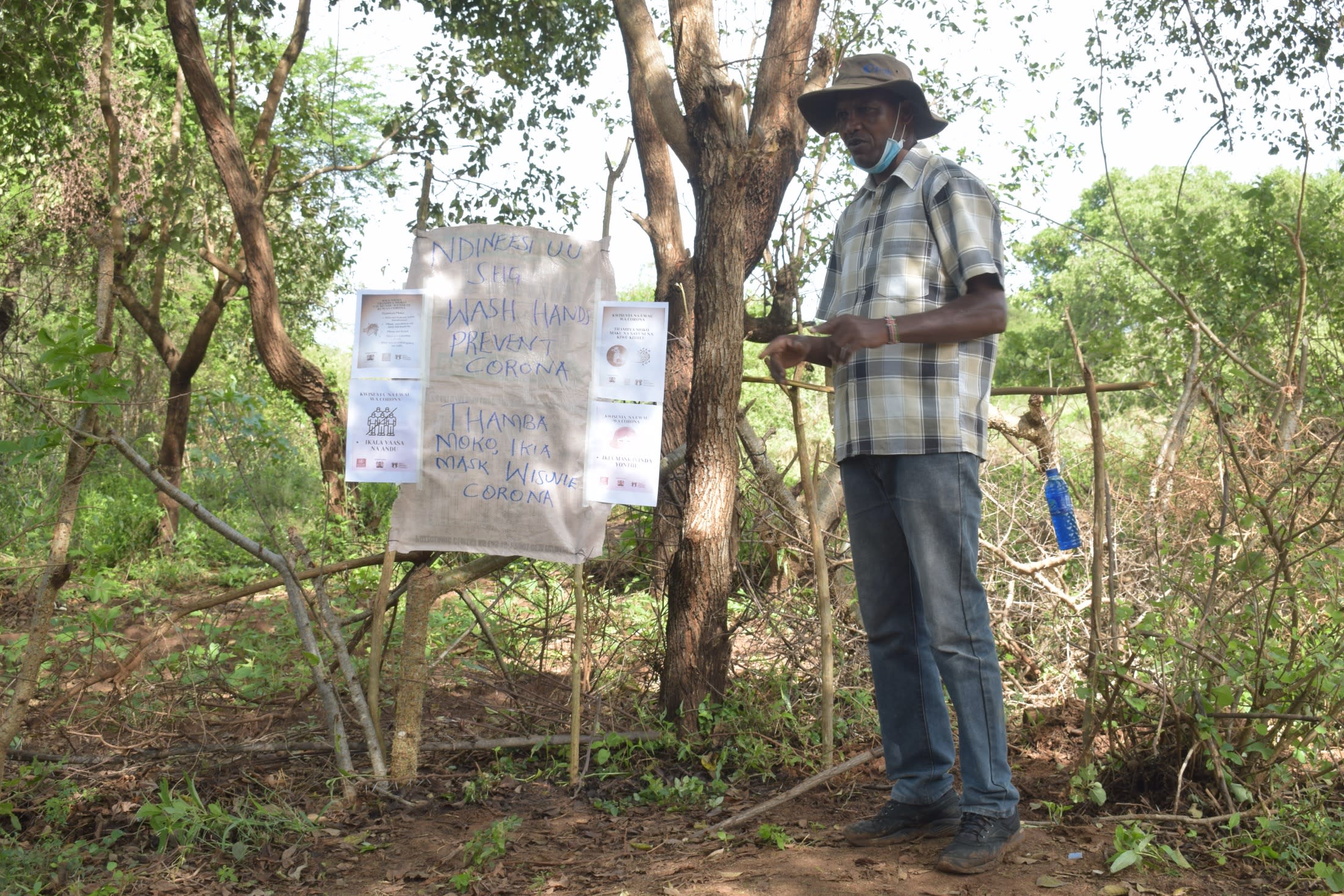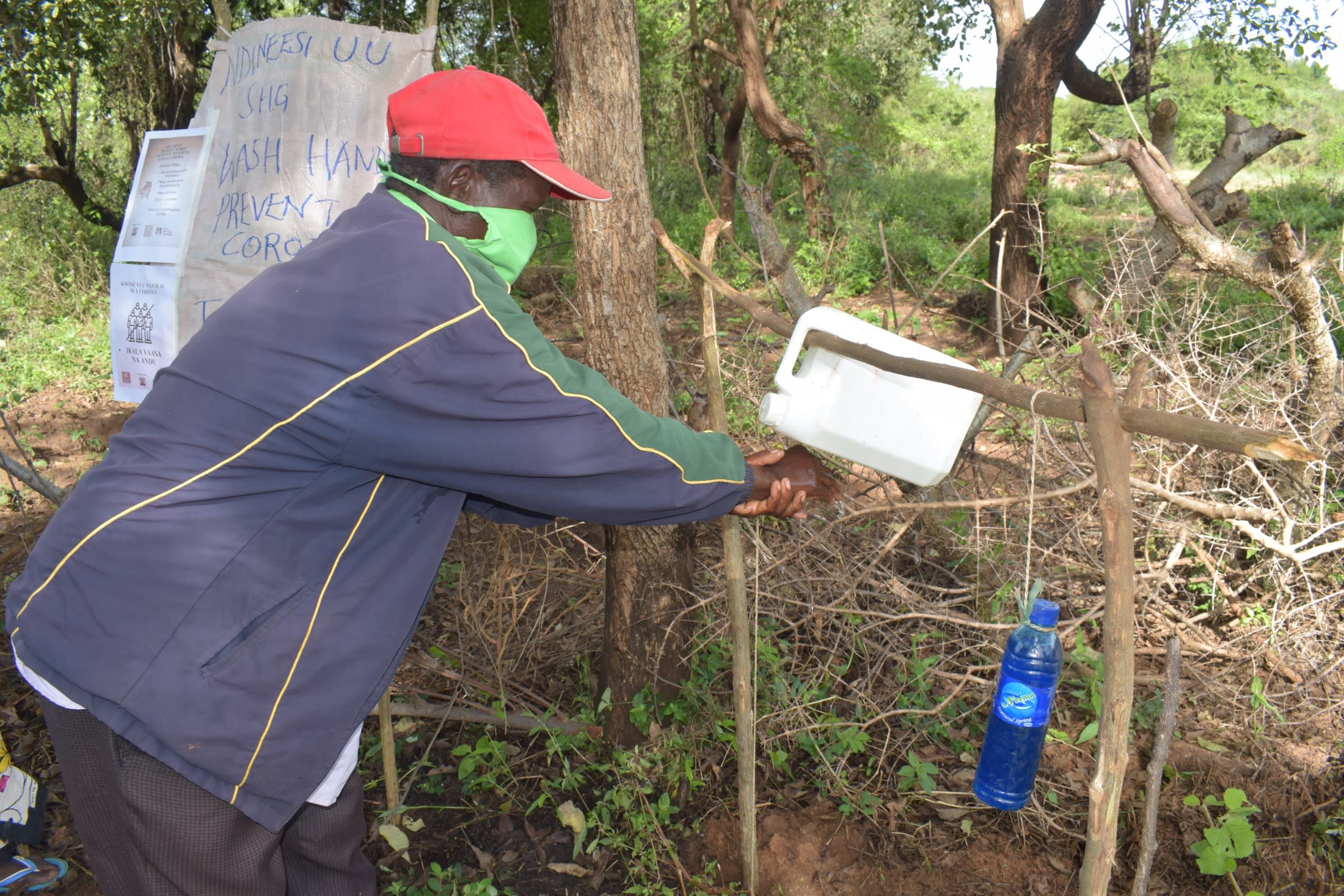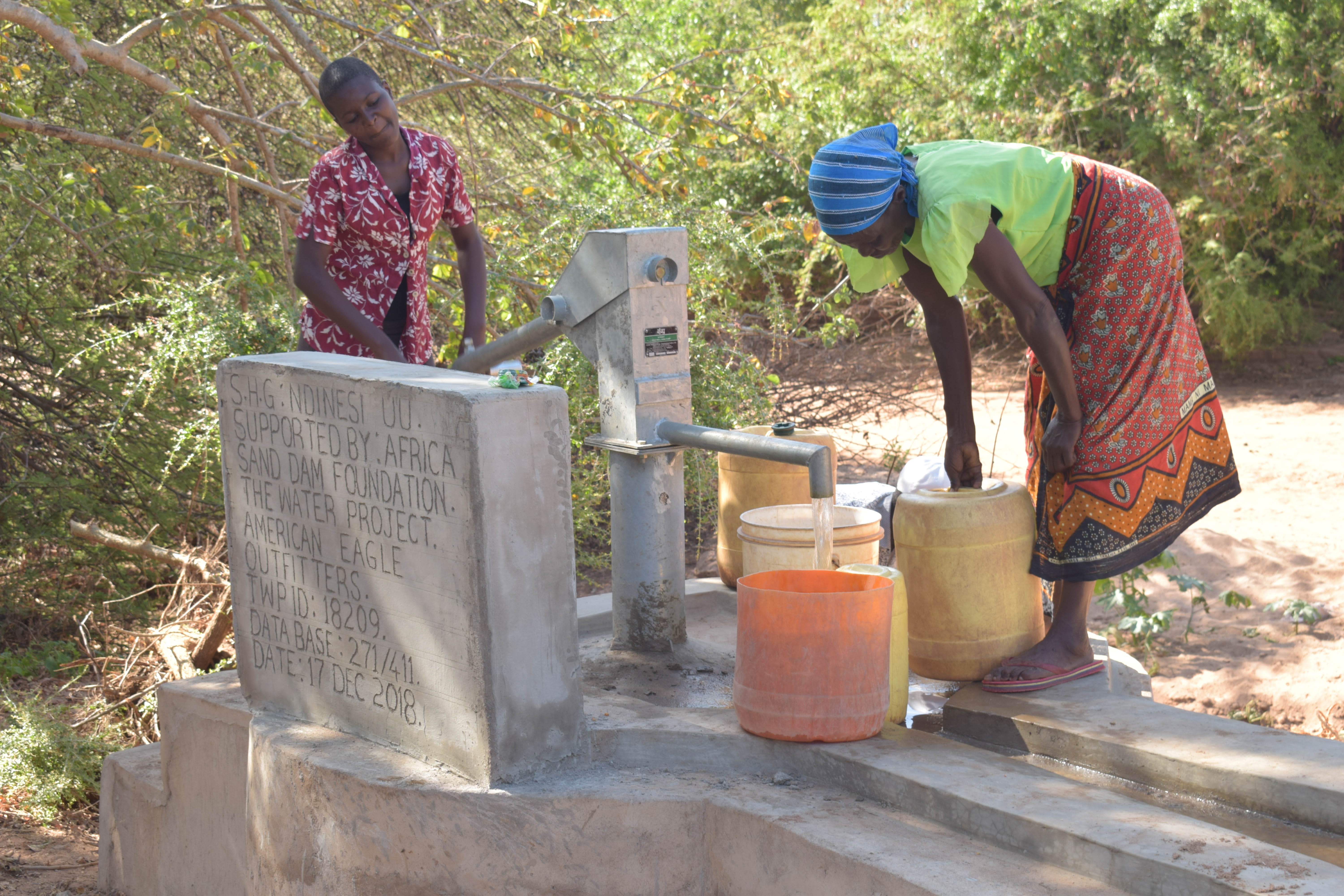Unpredictable rainfall patterns can’t guarantee water for communities such as Katuluni Village. Most rivers in this region are seasonal. Hand-dug wells are being built along sandy riverbeds to provide clean water, while sand dams harvest rainwater where it falls and make it available to the community through the dry season. This provides enough safe water for households, livestock and for income generating activities.
This is the second dam and hand pump for the community, having worked with them last year. It is a part of a long-term partnership between The Water Project, ASDF and community members to ensure access to safe water all year. Click here to see the projects they built in nearby Ikulya Community last year.
Water
Some community members use the well dug by the Ndineesi Uu Self-Help Group last year, but it can only serve 500 people out of a community of more than 2,000. That means that many people still have to go to other open sources to collect water. Some members of the group still walk for long distances to access the water point.
Water in most parts of this region is collected from open scoop holes in sandy seasonal rivers using 20-liter plastic jerrycans. The water s then loaded onto donkeys or some carry it on their backs. The majority of drinking water is then stored in high capacity plastic containers, but it is generally untreated for contaminants.
Sanitation
Roughly two-thirds of community members have latrines. The latrines exhibited average levels of cleanliness. Some were made of permanent and semi-permanent structures, chances are high that some latrines have been affected by the ongoing rains leading to their sinking or fall.
The group members are showing commendable strides in use of the information from the sanitation and hygiene training, like tippy taps and garbage pits. This can be attributed to a positive mindset among the community members willing to embrace constructive ideas.
Community
Katuluni is more than 300km away from ASDF's offices in Mtito Andei. We traveled to the site by car with the majority of the roads up to Mwingi Town being tarmacked. We had to camp in town for several days due to the distance to the project area so as to cover many projects within the area.
The community group is found in a silent rural village which is largely dry except during the rainy seasons. The area has limited tree coverage with a charcoal burning menace affecting the area which has led to many trees being sacrificed for charcoal trade. Majority of households had decent houses made of bricks and covered with iron sheets, However, there also cases of households living in grass thatched mud houses.
Marginalization by successive government regimes has led to low levels of development in the area with no medical facilities and access roads. Cases of illnesses have led to many deaths as the area lacks a health facility and the poor roads lead to delays in emergency responses for ailing community members.
A typical day starts at 6am. The children prepare for and go to school. After that, livestock are either taken for grazing or tethered in the bush. The husband and wife are free to engage in the main income generating activities, farming, casual labor, etc., for the rest of the day.
What we plan to do about it:
Our main entry point into Katuluni Community has been the Ndineesi Uu Self-Help Group, which is comprised of 39 farming households that are working together to address water and food scarcity in their region. These members will be our hands and feet in both constructing water projects and spreading the message of good hygiene and sanitation to everyone.
Training
We’re going to continue training Katuluni Community on hygiene and sanitation practices. Though our visits to households were encouraging, we want to ensure that community members are practicing the day to day habits we’re not able to observe. Food hygiene, water hygiene and treatment, personal hygiene and handwashing will all be a focus during our next review.
Hand-Dug Well
This particular hand-dug well is being built adjacent to this group’s ongoing sand dam project (click here to see), which will supply clean drinking water once it rains. We have supplied the group with the tools needed for excavation. With the guidance of our artisans and mechanics, the excavated well will be cased, sealed with a well pad, and then finished with a new AfriDev pump.
Excavation takes a month or more on average, depending on the nature of the rock beneath. Construction of the well lining and installation of the pump takes 12 days maximum. The well will be lined with a concrete wall including perforations so that once it rains, water will filter in from the sand dam.
This well will be located in Katuluni Village and will bring clean water closer to families having to walk long distances for their water.
This project is a part of our shared program with Africa Sand Dam Foundation. Our team is pleased to provide the reports for this project (edited for readability) thanks to the hard work of our friends in Kenya.

 Protected Dug Well
Protected Dug Well
 Rehabilitation Project
Rehabilitation Project


































